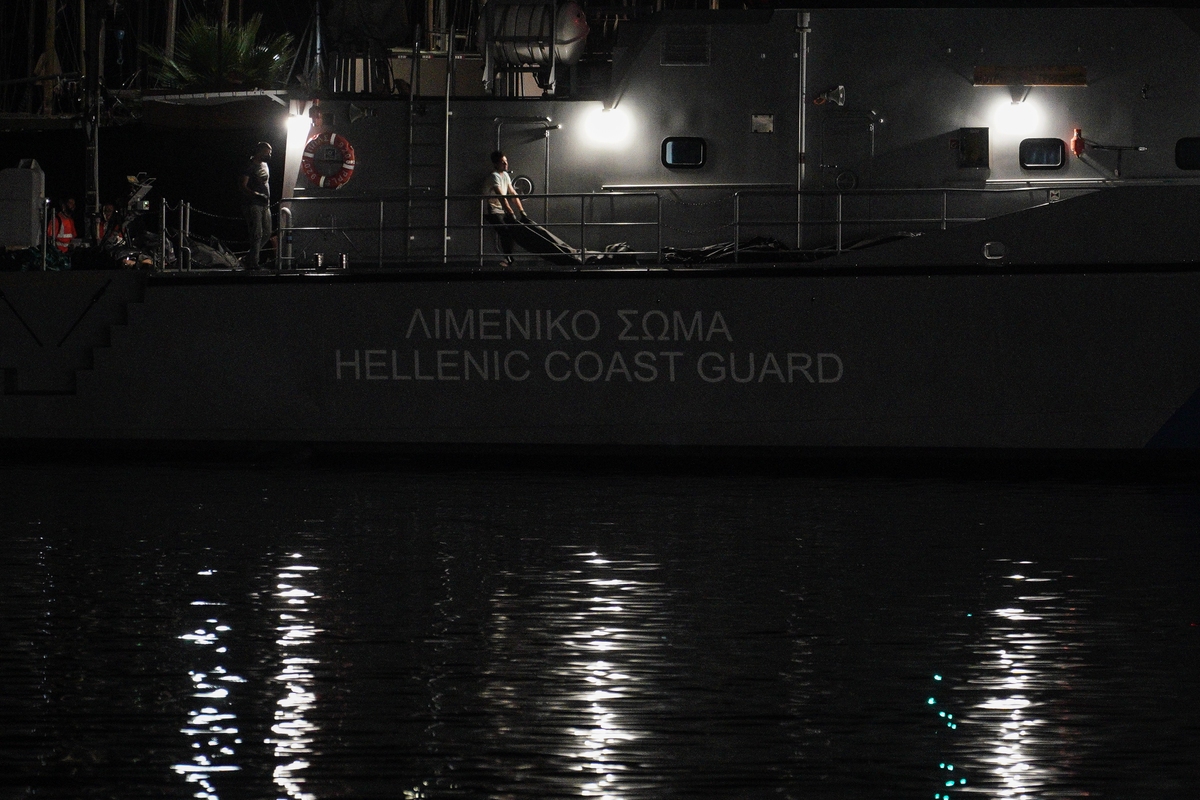The Pylos shipwreck case: A brief summary

The chronicle
In June 2023, the refugees aboard the fishing vessel Adriana found themselves in a state of emergency in international waters within a Greek rescue zone. Despite continuous distress signals and calls for help, neither the Greek Coast Guard nor Frontex initiated a rescue operation. Instead, the Hellenic Coast Guard dispatched patrol boat 920, not for rescue but for an illegal operation to remove refugees from the Greek rescue zone. This practice, known as “pushback”, involved supplying the refugees with provisions and fuel to continue their journey, in this case towards Italy, facilitated by two commercial ships.
The Greek Coast Guard, guiding the Adriana with a white light, led the refugees to believe they were being escorted to Italy. However, the fishing vessel’s engine failed again during this pushback. Eyewitness reports and survivor testimonies indicate that the Coast Guard vessel attempted to tow the Adriana with a blue rope twice, with the second attempt resulting in the vessel’s capsizing. This tragic incident left 600 refugees, mainly of Pakistani origin, trapped underwater, and approximately 150 refugees from Pakistan, Syria, Egypt, and Palestine thrown into the sea. Survivors reported that the Coast Guard did not engage in rescue operations immediately, failing to deploy life jackets or attempt any immediate recovery.
Refugees were left in the water for 30 minutes to two hours before a rudimentary rescue operation began, resulting in the recovery of 84 bodies and 104 survivors. Among the survivors were nine Egyptians, who, despite their harrowing ordeal, were arrested and charged with serious crimes while still in wet clothes. The preliminary investigation, marred by incomplete evidence and testimonies from nine prosecution witnesses, quickly categorised these survivors as “crew members with distinct roles”, leading to felony charges of illegal immigration trafficking, forming and participating in a criminal organisation, causing a shipwreck, and entering the country illegally.
Journalists and independent investigators later revealed a domino of information about the Coast Guard’s actions, none of which was included in the official case file or the expert report. The latter attributed the shipwreck to the vessel’s instability and the internal movement of passengers. A lawsuit filed by 45 survivors against the Greek Coast Guard remains pending in the Maritime Court, with little progress made in the investigation despite extensive media coverage over 11 months.
Court proceedings
The initial request by the defence lawyers to halt the trial, citing the Greek courts’ lack of jurisdiction because the shipwreck occurred in international waters, was rejected. The court’s ruling argued that it was indeed a Greek case, as the refugees, fully aware of the poor condition of their unseaworthy vessel and the risks it posed, undertook their journey from Libya to Italy, thus recognising the possibility of entering Greek waters.
This ruling, which the defence criticised as criminalising mere thoughts and intentions, led to the trial proceeding at the Three-member Criminal Appeal Court of Kalamata on Tuesday, May 21. The court acquitted the nine Egyptians of the charges of migrant smuggling and illegal entry. Furthermore, it determined that it lacked jurisdiction over the case because the shipwreck occurred in international waters.
“Time for justice to find the real culprits, in the Coast Guard,” stated lawyer Vicky Angelidou, reflecting the sentiment that the true responsibility for the tragedy lay with the actions—or inactions—of the Greek authorities.
______________________________________________
Are you seeking news from Greece presented from a progressive, non-mainstream perspective? Subscribe monthly or annually to support TPP International in delivering independent reporting in English. Don’t let Greek progressive voices fade.
Make sure to reference “TPP International” and your order number as the reason for payment.